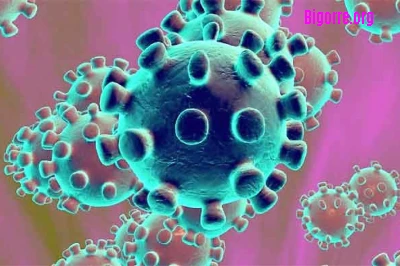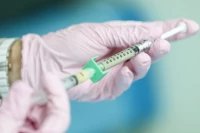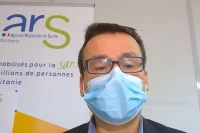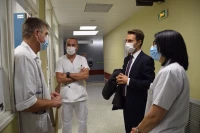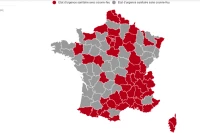A new phase in the fight against the coronavirus epidemic is upon us. In 24 hours, the strict lockdown will give way to a gradual easing of restrictions. This new phase is coming at a time when the COVID-19 epidemic is struggling to decline. The latest bulletin from the Occitanie Regional Health Agency shows that the coronavirus has declined only slightly in the region. With only two fewer people in the region's hospitals, one fewer in intensive care, and six people who have recovered and returned home, we can no longer speak of a decline but of a steady level of contamination in the region. This observation is identical in all 13 departments of the region. A variation in the downward trend is made up of phases of decline, but also of stagnation and even resurgence. The absence of a strong trend will not offer much resistance to the risk associated with the spread of the coronavirus as a result of the easing of restrictions. Only barrier gestures and social distancing will protect the region's residents from the risk of a resurgence of the epidemic. Schools and daycare centers to open from Monday
Edouard Philippe made it clear during his speech on Thursday, May 7th, that the easing of lockdown should not be a sign of a relaxation of our vigilance. We will therefore be entering a period of transition between life in lockdown and full freedom starting Monday. Jean-Michel Blanquer announced a gradual resumption of classes in primary and secondary schools. Some towns, such as Soues, announced that schools would not open until May 11th. For others, May 11th will be dedicated to teachers' pre-return to school, and students will only return gradually from the following day. Students in the final year of kindergarten, CP, and CM2 will be the first. Each class will be allowed a maximum of 15 students. Childcare facilities, daycare centers, and childminders will also be easing lockdown. However, parents may decide to keep their children home to continue distance learning. This back-to-school season is not just any old one,
explains Jean-Michel Blanquer. It's a return to school. Children will be able to find themselves in four situations: at school in small groups, studying, in after-school facilities (sports, health, civics), or at home in distance learning.
Middle schools will be able to start operating the following week, and high schools will have to wait until the end of May to find out if they can open in early June. Students like those at ENIT or IUT Tarbes will have to wait until next September to return to their schools.
Travel within 100 km will no longer require justification
A duly justified Exceptional Travel Certificate is no longer required to leave home. However, travel beyond a 100-kilometer radius from home will have to be justified by a "compelling family or professional reason," with a new version of the Exceptional Travel Certificate. This may be for bereavement or to assist a vulnerable person. These 100 km will be calculated as the crow flies from the usual place of residence. I would like to point out, however, that this limit only applies if you are leaving your department of residence,
the Prime Minister clarified.
Resumption of activity
Commercial and economic activity will also gradually resume. All businesses will be able to open except social spaces
such as bars and restaurants. Shopping centers will also be able to reopen, but subject to the approval of the prefects to verify that all conditions are met for commercial activity to comply with social distancing measures. Interregional travel will gradually resume. At the national level, the SNCF plans to increase the use of TGV and Intercités services from the current 7% to 20% on May 11, reaching 40% by the end of May. In Occitanie, the liO service will correspond to 50% of the usual transport schedule, then 60% the following week. To enforce social distancing, every other seat will be blocked off on trains. However, on certain lines, such as the coastal line and the Toulouse Star, some trains will be doubled to increase passenger capacity while maintaining good sanitary conditions. Train service is expected to reach 90% to 100% after May 25. Wearing a mask will be mandatory in stations for everyone aged 11 and over.
Barrier gestures and social distancing against the risk of a second wave
With the end of lockdown, the virus will likely spread more. By limiting travel beyond 100 kilometers, traffic will slow down nationally. However, it will be much faster at the departmental and regional levels. This means that the number of
